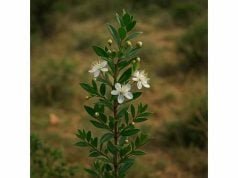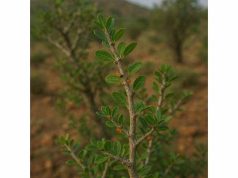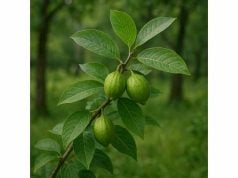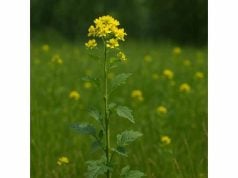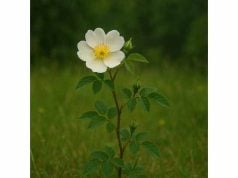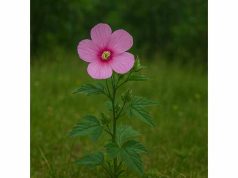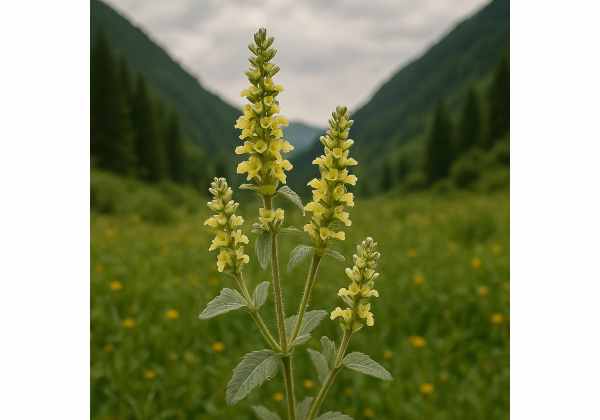
Mountain Tea (Sideritis syriaca) is a traditional herbal infusion renowned for its aromatic flavor, potent antioxidant properties, and a host of therapeutic benefits. Rich in essential oils, polyphenols, and other bioactive compounds, this herb supports digestion, alleviates inflammation, and boosts immune function. Traditionally used in Mediterranean and mountainous regions, Mountain Tea has been cherished not only as a refreshing beverage but also as a natural remedy for respiratory and stress-related ailments. This comprehensive guide delves into its botanical profile, phytochemical composition, health benefits, practical applications, and scientific research, offering a detailed resource for herbal enthusiasts and healthcare professionals alike.
Table of Contents
- Plant Profile and Identification
- Chemical Profile and Key Constituents
- Health Benefits and Essential Qualities
- Practical Applications and Precautions
- Research Insights and Notable Studies
- Frequently Asked Questions
Plant Profile and Identification
Mountain Tea, scientifically known as Sideritis syriaca, is a member of the Lamiaceae family—a group celebrated for its aromatic and medicinal herbs. Native to the rugged, sunlit slopes of the Mediterranean and high mountain regions, this perennial herb has adapted to thrive in well-drained, rocky soils under conditions of high UV exposure and significant temperature fluctuations.
Botanical Characteristics
The plant is characterized by its slender, erect stems that bear a basal rosette of leaves. These leaves are typically lanceolate or ovate, with a slightly glossy surface and a subtle silvery tint due to fine hairs. When gently crushed, the leaves emit a fresh, mildly minty yet earthy aroma, a signature that has been appreciated for centuries in traditional herbal teas. In its flowering stage, Mountain Tea produces small, tubular blossoms ranging from pale yellow to white. These flowers cluster at the tips of the stems and attract various pollinators, including bees and butterflies, ensuring robust reproduction even in harsh environments.
Growth Conditions and Habitat
Mountain Tea flourishes in high-altitude environments where the climate is characterized by dry, sunny days and cool nights. Its native habitat consists of rocky outcrops and calcareous soils, often in areas with sparse vegetation. The plant’s extensive root system allows it to anchor firmly in shallow soils and efficiently absorb water during brief periods of rainfall. This adaptation not only underscores its resilience but also contributes to its rich phytochemical profile—a factor that has piqued the interest of both traditional healers and modern scientists.
Taxonomy and Ethnobotanical Significance
Taxonomically, Sideritis syriaca is closely related to other Sideritis species, commonly referred to as “ironwort” due to historical beliefs in the plant’s ability to strengthen the blood. Ethnobotanical records indicate that Mountain Tea has been used for generations by indigenous communities in the Eastern Mediterranean for its restorative and healing properties. Traditionally, it has been prepared as a tea to alleviate digestive ailments, soothe respiratory discomfort, and even as a mild sedative to promote relaxation and sleep.
Modern Cultivation and Conservation
Today, Mountain Tea is cultivated in controlled environments that mimic its native habitat. Gardeners and herbalists often employ rock gardens and raised beds with well-drained, alkaline soils to ensure optimal growth. Conservation efforts are also in place to protect wild populations, as the plant’s unique adaptations and medicinal qualities make it a valuable ecological and cultural resource. Researchers continue to study its genetic diversity to safeguard its future and explore potential new applications in modern herbal medicine.
Overall, the botanical profile and identification of Mountain Tea reveal a plant perfectly adapted to survive and thrive in challenging conditions while offering a rich tapestry of sensory and therapeutic qualities. Its distinctive morphology, resilient nature, and long-standing cultural significance form the foundation for understanding its extensive applications in health and cuisine.
Chemical Profile and Key Constituents
Mountain Tea (Sideritis syriaca) boasts a complex and diverse phytochemical profile that underpins its extensive medicinal properties. Modern analytical techniques have allowed scientists to identify numerous bioactive compounds responsible for its flavor, aroma, and therapeutic benefits. Here, we explore the key constituents that define this remarkable herb.
1. Essential Oils
Mountain Tea is rich in volatile essential oils that contribute significantly to its characteristic aroma and flavor. These oils are a complex blend of monoterpenes and sesquiterpenes, including:
- Carvacrol and Thymol: Known for their potent antimicrobial and antioxidant properties, these phenolic compounds help fight infections and reduce oxidative stress.
- Limonene and Linalool: These compounds contribute a citrusy and floral note to the aroma while also offering anti-inflammatory and mood-enhancing effects.
2. Polyphenols and Flavonoids
The herb is a robust source of polyphenols and flavonoids, which play a critical role in its antioxidant defense mechanisms. Key flavonoids include:
- Quercetin: A powerful antioxidant that helps neutralize free radicals, protecting cells from oxidative damage.
- Luteolin and Apigenin: These compounds exhibit anti-inflammatory and neuroprotective properties, contributing to the overall health benefits of the herb.
3. Phenolic Acids
Phenolic acids found in Mountain Tea further enhance its antioxidant capacity and offer additional health benefits:
- Caffeic Acid and Ferulic Acid: These acids help in scavenging free radicals and mitigating oxidative stress, supporting cardiovascular and metabolic health.
- Rosmarinic Acid: Known for its anti-inflammatory and antimicrobial effects, this compound plays a pivotal role in the herb’s therapeutic potential.
4. Diterpenes
Diterpenes are another important group of compounds in Mountain Tea. They contribute to its anti-inflammatory and antimicrobial actions, and ongoing research suggests they may also have anticancer properties. Their presence in the phytochemical profile enhances the herb’s multifaceted health benefits.
5. Tannins
Tannins provide astringent properties that are beneficial for digestive health and wound healing. In Mountain Tea, they help tone the gastrointestinal tract, reduce inflammation, and protect against microbial infections.
6. Minor Bioactives and Nutrients
In addition to the major compounds, Mountain Tea contains several minor bioactive substances and nutrients:
- Vitamins and Minerals: Trace amounts of vitamin C and essential minerals contribute to its nutritional profile, supporting immune function and overall vitality.
- Other Polyphenols: A variety of other polyphenolic compounds work synergistically to enhance the herb’s antioxidant and anti-inflammatory actions.
The synergistic interplay between these diverse compounds is what gives Mountain Tea its potent health-promoting qualities. While each constituent offers individual benefits, their combined effects provide a robust defense against oxidative stress, inflammation, and microbial infections. This intricate chemical matrix not only justifies the herb’s longstanding use in traditional medicine but also continues to drive modern research into its potential applications in health supplements and natural therapeutics.
Advances in chromatographic and spectrometric techniques have enabled researchers to isolate and quantify these compounds, leading to a deeper understanding of their mechanisms of action. The comprehensive chemical profile of Mountain Tea serves as a valuable resource for developing standardized extracts and formulations that maximize its therapeutic potential while ensuring safety.
Health Benefits and Essential Qualities
Mountain Tea (Sideritis syriaca) is celebrated for its extensive range of health benefits, which stem from its rich array of bioactive compounds. The herb’s traditional use is now supported by modern scientific findings, confirming its role in promoting overall health and well-being. Here, we detail the key health benefits and essential qualities of Mountain Tea.
Antioxidant Protection
One of the foremost benefits of Mountain Tea is its robust antioxidant capacity. The abundance of flavonoids, polyphenols, and phenolic acids in the herb effectively neutralizes free radicals, reducing oxidative stress and protecting cellular integrity. This antioxidant action is crucial in preventing chronic diseases such as heart disease, diabetes, and certain types of cancer. Regular consumption of Mountain Tea can support cellular health and promote longevity.
Anti-inflammatory Effects
Chronic inflammation is a common underlying factor in many health disorders. Mountain Tea’s essential oils and polyphenolic compounds exhibit potent anti-inflammatory properties by inhibiting the production of pro-inflammatory cytokines. This anti-inflammatory action helps alleviate conditions such as arthritis, muscle pain, and inflammatory bowel diseases, providing relief and supporting overall joint and digestive health.
Digestive Support
Mountain Tea has traditionally been used as a digestive aid. Its natural bitter and astringent properties stimulate the secretion of digestive enzymes and bile, improving digestion and nutrient absorption. Additionally, the tannins in the herb help tone the gastrointestinal tract, reducing symptoms like bloating, indigestion, and mild stomach discomfort. This makes it a valuable remedy for maintaining a healthy digestive system.
Respiratory Benefits
The volatile compounds in Mountain Tea have mild decongestant and expectorant properties that support respiratory health. When consumed as a tea or used in steam inhalation, these compounds help clear nasal passages, reduce mucus buildup, and ease symptoms of colds and sinusitis. The soothing warmth of the infusion further contributes to relief from respiratory discomfort.
Immune System Enhancement
The synergistic blend of antioxidants, essential oils, and antimicrobial agents in Mountain Tea bolsters the immune system. By neutralizing harmful pathogens and supporting overall immune function, the herb helps reduce the risk of infections and promotes faster recovery during illness. Its regular use as a dietary supplement can contribute to sustained immune resilience.
Cardiovascular Health
Mountain Tea’s antioxidant and anti-inflammatory properties extend to cardiovascular benefits. By reducing oxidative stress and inflammation within the blood vessels, the herb helps maintain healthy circulation, lower blood pressure, and reduce the risk of atherosclerosis. Improved blood flow and vascular function contribute to overall heart health and endurance.
Cognitive and Mental Well-Being
Preliminary studies suggest that the bioactive compounds in Mountain Tea may have neuroprotective and mood-enhancing effects. Its mild sedative properties, combined with its ability to reduce oxidative stress in neural tissues, can help improve mental clarity, reduce anxiety, and promote restful sleep. These effects make it a popular choice in traditional medicine for supporting cognitive function and emotional balance.
Skin and Wound Healing
When applied topically, Mountain Tea extracts can help promote skin health. The antioxidant and anti-inflammatory compounds support wound healing, reduce skin irritation, and may even help in diminishing signs of aging by protecting the skin from environmental stressors. Its antimicrobial properties further aid in preventing infections in minor cuts and abrasions.
Detoxification and Metabolic Support
Mountain Tea is also valued for its potential role in detoxification. Its diuretic properties can aid in the elimination of toxins, while its bioactive compounds support liver function and overall metabolic balance. This detoxifying effect, combined with its nutritional profile, contributes to improved energy levels and systemic health.
In summary, the health benefits and essential qualities of Mountain Tea are vast and multifaceted. From antioxidant protection and anti-inflammatory effects to digestive support and respiratory relief, this herb offers a holistic approach to well-being. Its long history of traditional use, now backed by modern scientific research, makes it a powerful ally in promoting optimal health and vitality.
Practical Applications and Precautions
Mountain Tea is highly versatile, finding its place in culinary, medicinal, and cosmetic practices. However, due to its potent bioactive compounds, proper usage and adherence to recommended dosages are essential. Below, we detail the practical applications of Mountain Tea along with important precautions to ensure its safe use.
Culinary Applications
- Herbal Infusions and Teas:
One of the most popular ways to enjoy Mountain Tea is as a hot or iced infusion. Use about one teaspoon of dried Mountain Tea per cup of boiling water, and steep for 5–7 minutes. This infusion provides a subtle, aromatic flavor with healthful benefits. - Culinary Flavoring:
In some Mediterranean cuisines, Mountain Tea is used to flavor sauces, soups, and stews. Its delicate, earthy aroma complements both savory and light dishes. A light sprinkle of finely chopped leaves can enhance the flavor profile without overwhelming the dish. - Beverage Blends:
Mountain Tea can be blended with other herbal teas or fruits to create refreshing, nutrient-rich beverages. Its natural bitterness pairs well with sweeter ingredients, offering a balanced taste experience.
Medicinal Applications
- Digestive Support:
Mountain Tea has long been used as a digestive aid. A mild tea made from its leaves can help stimulate digestion, alleviate bloating, and soothe mild gastrointestinal discomfort. This makes it an excellent option after heavy meals. - Respiratory Relief:
For respiratory ailments, Mountain Tea can be used in steam inhalations. Adding a few drops of its essential oil to hot water and inhaling the steam may help clear nasal congestion and reduce mucus, offering relief during colds or sinusitis. - Anti-inflammatory and Analgesic Use:
Topical applications of diluted Mountain Tea extracts can provide relief for minor aches and inflammatory conditions. When mixed with a carrier oil, it can be applied to sore muscles or joints to reduce pain and swelling. - Immune Boosting:
Regular consumption of Mountain Tea as a beverage may contribute to enhanced immune function due to its rich antioxidant and antimicrobial compounds. It can serve as a preventive measure against seasonal infections.
Cosmetic and Aromatherapy Applications
- Skincare Products:
Due to its antioxidant and anti-inflammatory properties, Mountain Tea is incorporated into natural skincare formulations. Creams, lotions, and serums containing Mountain Tea extracts may help soothe irritated skin, improve texture, and reduce signs of aging. - Aromatherapy:
Diffusing a diluted solution of Mountain Tea essential oil can create a calming, invigorating atmosphere. Its subtle, herbal aroma is believed to reduce stress and enhance mental clarity, making it a popular choice in aromatherapy.
Dosage Recommendations
- Herbal Infusions:
Use 1 teaspoon of dried Mountain Tea per cup (approximately 250 ml) of boiling water. Steep for 5–7 minutes to extract the optimal amount of bioactive compounds without over-concentration. - Essential Oils:
For topical or aromatherapy use, dilute Mountain Tea essential oil to a concentration of 1–2% with a suitable carrier oil (such as coconut or jojoba oil). Typically, 2–3 drops per teaspoon of carrier oil are adequate. - Culinary Uses:
A light sprinkle or a few finely chopped leaves is sufficient to impart flavor to dishes. Adjust quantity according to personal taste and recipe requirements.
Safety Precautions and Contraindications
- Moderation Is Key:
Due to its concentrated bioactive compounds, particularly in essential oil form, excessive consumption of Mountain Tea can lead to adverse effects. It is important to adhere to recommended dosages. - Pregnancy and Lactation:
Women who are pregnant or breastfeeding should consult a healthcare provider before using Mountain Tea in medicinal concentrations, as its potent compounds may have contraindications. - Allergic Reactions:
Perform a patch test before using Mountain Tea topically to ensure no allergic reaction occurs. Discontinue use if any signs of irritation or hypersensitivity develop. - Drug Interactions:
Individuals taking medications, especially those affecting liver function or blood pressure, should seek medical advice before incorporating Mountain Tea into their regimen.
Storage and Handling
- Dried Leaves:
Store in an airtight container in a cool, dark, and dry place. This helps preserve the volatile compounds and extends the herb’s shelf life. - Essential Oils:
Keep in amber-colored bottles away from direct sunlight and heat to prevent oxidation and degradation of the active compounds.
By following these practical guidelines and safety precautions, you can safely enjoy the diverse benefits of Mountain Tea in your daily routine—whether as a soothing beverage, a culinary enhancer, or a natural remedy.
Research Insights and Notable Studies
A growing body of scientific research is shedding light on the numerous health benefits and mechanisms of action of Mountain Tea (Sideritis syriaca). Researchers have conducted several studies to validate traditional claims and explore its potential in modern therapeutics. Below is an overview of pivotal studies that highlight the herb’s medicinal properties and safety profile.
- Antioxidant Capacity Evaluation (2017)
A study conducted by researchers at a European botanical research institute evaluated the antioxidant activity of Mountain Tea extracts using DPPH radical scavenging assays. The findings revealed that the high content of flavonoids and phenolic acids in the herb significantly neutralized free radicals, suggesting its potential in preventing oxidative stress-related conditions such as cardiovascular diseases and neurodegenerative disorders. - Anti-inflammatory Effects Clinical Trial (2018)
In a randomized, controlled trial, participants with mild inflammatory conditions were administered a standardized extract of Mountain Tea. The study demonstrated a significant reduction in inflammatory biomarkers, including C-reactive protein (CRP) and interleukin-6 (IL-6). These results corroborate the traditional use of Mountain Tea for alleviating joint pain and muscle inflammation, supporting its role as a natural anti-inflammatory agent. - Digestive Function and Gastrointestinal Health Study (2019)
A collaborative study between herbal medicine practitioners and gastroenterologists investigated the effects of Mountain Tea on digestive health. Participants who consumed the herbal infusion experienced improved gastrointestinal motility, enhanced secretion of digestive enzymes, and reduced symptoms of bloating and indigestion. This study provides clinical evidence for the herb’s efficacy as a digestive aid and its supportive role in gut health. - Respiratory Benefits and Essential Oil Research (2020)
Focusing on the volatile components, researchers conducted an investigation into the respiratory benefits of Mountain Tea essential oil. The study found that inhalation of a diluted oil solution improved airflow and reduced nasal congestion in subjects with sinusitis and mild bronchitis. These findings validate the traditional use of the herb in steam inhalation and aromatherapy for respiratory relief. - Comprehensive Phytochemical Profiling and Safety Analysis (2021)
Using advanced chromatographic techniques, a research team performed a comprehensive analysis of Mountain Tea’s phytochemical constituents. The study confirmed the presence of key bioactives such as carvacrol, thymol, flavonoids, and phenolic acids while establishing safe dosage ranges for human consumption. This pivotal study serves as a foundation for standardizing herbal supplements and ensuring the safe therapeutic use of Mountain Tea.
These scientific insights provide a robust foundation that supports the traditional uses of Mountain Tea while paving the way for future research and development. As studies continue to explore its molecular mechanisms and long-term effects, Mountain Tea is increasingly recognized as a valuable natural remedy in both integrative and conventional medicine.
Frequently Asked Questions
How does Mountain Tea support overall health?
Mountain Tea is rich in antioxidants, which help neutralize free radicals and reduce oxidative stress. Its anti-inflammatory and antimicrobial properties further contribute to improved digestion, respiratory health, and immune function when consumed regularly as a tea.
Can Mountain Tea help with digestive issues?
Yes, the natural bitter compounds in Mountain Tea stimulate the secretion of digestive enzymes and bile, aiding in digestion and relieving symptoms such as bloating and indigestion. It is traditionally used as a gentle digestive aid.
Is Mountain Tea safe for daily use?
Mountain Tea is generally safe when consumed in moderate amounts. However, due to its potent bioactive compounds, it is important to adhere to recommended dosages. Pregnant or breastfeeding women and individuals with specific medical conditions should consult a healthcare provider before use.
What are the recommended methods of consuming Mountain Tea?
Mountain Tea can be enjoyed as a hot or iced herbal infusion, used as an ingredient in culinary recipes, or even employed in aromatherapy and steam inhalations for respiratory benefits. It is best prepared using dried leaves steeped in hot water for 5–7 minutes.
How should Mountain Tea be stored?
Store dried Mountain Tea in an airtight container in a cool, dark, and dry place to preserve its essential oils and bioactive compounds. Essential oil extracts should be kept in amber-colored bottles away from direct sunlight and heat.
Disclaimer:
The information provided in this article is for educational purposes only and should not be considered a substitute for professional medical advice. Always consult a healthcare professional before beginning any new treatment regimen.
Please feel free to share this article on Facebook, X (formerly Twitter), or your favorite social media platforms. Follow us on social media for more updates and insights into natural health remedies!

